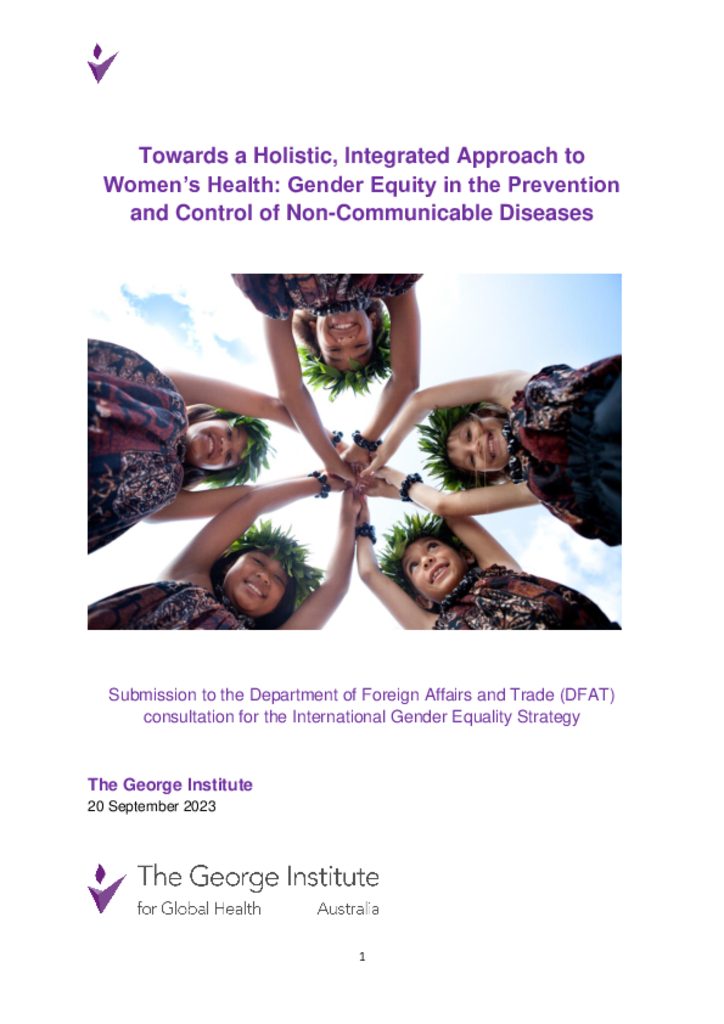
Submission to the Department of Foreign Affairs and Trade consultation for the International Gender Equality Strategy
The George Institute for Global Health is pleased to contribute a written submission to the Department of Foreign Affairs and Trade’s (DFAT) consultation on its International Gender Equality Strategy. We welcome the development of a gender equality strategy to guide Australia’s development partnerships in the Asia-Pacific region, and beyond.
This submission responds to DFAT’s consultation questions in four parts. First, we outline gender equality priorities as they relate to women’s health, focusing on the importance of a life-course approach. We go on to outline three effective approaches for achieving gender equality globally, notably supporting civil society organisations, gender-transformative programming, and addressing evidence gaps on the intersections of gender, climate, and health. Part III outlines the unique role Australia can play in the effort to achieve gender equality internationally, and finally, we point to the importance of engagement with women and girls throughout the development of this strategy. We believe this is an opportunity for DFAT to create meaningful change through development partnerships with locally led, feminist civil society organisations.
Key recommendations
1. Invest in women’s health for gender equality and address the epidemic of noncommunicable diseases (NCDs) which are the leading causes of death and disease for women worldwide and threaten the most vulnerable women and girls.
2. Promote and support an integrated, life-course approach to addressing women’s health, embedding the prevention and management of NCDs into maternal and reproductive health programs to identify women at risk and reduce premature deaths.
3. Strengthen the evidence base by investing in the gendered analysis of health data, addressing the under-representation of women and girls in research, and ensuring that research and development for new treatments and care innovations explicitly address sex and gender differences.
4. Invest in local, women-led civil society organisations, which have been shown to be effective in leading change and yet are consistently under-funded.
5. Ensure all development programming focuses on addressing the discriminatory gender norms that underlie gender inequalities.
6. Address the evidence gaps on how and why heat and other impacts of the climate crisis are affecting women and men, to support the design of more effective public health interventions.
7. Support existing global mechanisms for achieving gender equality, such as the Convention on the Elimination of all forms of Discrimination Against Women (CEDAW). Australia should work with the CEDAW Committee to identify and address barriers faced by countries not participating in the CEDAW review process.
8. Promote equal representation of women in decision-making roles across the global health sector, commit to gender-equal delegations to global decision-making fora, and ensure that marginalised women and health workers are represented.
9. Ensure that women and girls actively participate in the development and implementation of the International Gender Equality Strategy, including health workers and women and girls living with – and caring for those living with – NCDs.
10. Establish a Civil Society Advisory Group to formally advise on the development of the International Gender Equality Strategy









